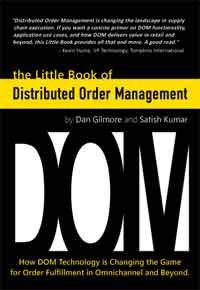The End of the Independent Trucker?
Is the end of the independent owner-operator truck driver near in the US?
That may be a bit overdramatic, but yet is a real possibility after a US appeals court in California overturned a lower court ruling that barred enforcement of a new California state law that makes it extremely difficult for any worker, in any occupation, to be classified as a contract employee - in this case for truck drivers.
| GILMORE SAYS: |
WHAT DO YOU SAY?'
Shawn Yadon, CEO of CTA, said that "The California Trucking Association will take any and all legal steps necessary to continue this fight on behalf of independent owner-operators and motor carriers operating in California."
Send us your
Feedback here
|
This battle - to largely or completely eliminate the ndependent truck driver position - has actually been going on, under different guises, for some time. More than 10 years ago, we wrote about how California tried to use new environmental rules for trucks at the Port of LA to in effect push independent drayage drivers hauling containers to and from the port out of business, unable to handle the costs associated with the new clean truck rules.
The goal then, as now: eliminate the concept of independents, numbering some 70,000 in the Golden state, forcing the carriers that hire them to transition them to full employees.
The real goal: since many of those carriers are union shops, tens of thousands of new employee drivers would swell the ranks of the Teamsters union in the state.
The American Trucking Associations sued to overturn the port rules then, in part because the Federal Aviation Administration Authorization Act of 1994 gives the federal pre-emptive control over trucking regulations, under the sensible view that interstate carriers could not possibly comply with a patchwork of rules that varied by state. The ATA was largely successful in its legal efforts. (See ATA to Seek Supreme Court Review of Areas it Lost in the Port of LA Decision on Drayage Regulation.)
Jump forward almost a decade. In 2018, the California Supreme Court handed down a ruling which set up a very tough "ABC" test for when a worker can be considered a contract employee.
That test consists of the following: Part A of the test requires that the worker is free from the control and direction of the hiring entity in connection with the performance of the work, both under the contract for the performance of the work and in fact; and
Part B of the test requires that the worker performs work is outside the usual course of the hiring entity's business; and
Part C of the test requires that the worker is customarily engaged in an independently established trade, occupation, or business of the same nature as the work performed.
In addition, the contractor must actually be in business for themselves.
This is a high bar indeed for an employee to be considered a legitimate contractor, especially Part B.
Concerned that a court ruling alone could be too easily overturned or tough to enforce, in 2019 the California legislature passed what is termed AB 5, a new law which codified the Supreme Court ABC rules.
That law was set to go into effect Jan. 1, 2020, but there was a variety of legal action, including a federal suit by the California Trucking Association (CTA) to stop enforcement of the law, under the federal pre-emption principle, among other claims.
I will in passing note AB 5 would ensnare all kinds of people, from freelance writers to Uber and Lyft drivers, though the state later did a cleanup bill to exempt some professions.
But not rideshare drivers. So both Uber and Lyft threatened they might have to pull operations out of the state if they were forced to comply.
Not wanting to lose their precious ridesharing access, in November 2020 California voters overwhelmingly passed a ballot measure to exempt Uber, Lyft and other rideshare companies from AB 5, though the measure did force some modest worker benefit requirements that had to be given to the still freelance drivers.
As for the CTA suit, a district court ruling held that CTA had standing and was likely to succeed on the merits of its claim. It therefore enjoined the state from enforcing AB 5 against any motor carriers doing business in California. Then the California attorney general and the International Brotherhood of Teamsters appealed the district court ruling to the 9th Circuit.
And that 9th Circuit court, known for its liberal rulings for decades, said this week that district court abused its discretion by enjoining the state of California from enforcing AB 5 against motor carriers doing business in California, saying the measure is "generally applicable labor law that affects a motor carrier's relationship with its workforce and does not bind, compel or otherwise freeze into place the prices, routes or services of motor carriers, and is not pre-empted by" federal law.
It's not over. Shawn Yadon, CEO of CTA, said that "The California Trucking Association will take any and all legal steps necessary to continue this fight on behalf of independent owner-operators and motor carriers operating in California."
 That could mean appealing to the full Circuit court, or eventually to the US Supreme Court. That could mean appealing to the full Circuit court, or eventually to the US Supreme Court.
But know this: there is currently a bill in Congress called The Protecting the Right to Organize (PRO) Act that would bake the California ABC test into federal law, among other new pro-labor rules.
And unless it carves out an exception for trucking, it I assume would make the Federal pre-emption argument against AB5 - for truck drivers at least - a moot point
So could California's anti-contractor law move quickly to other states? Will the federal PRO Act become law of the land? Either way, the independent trucker may become an endangered species - the irony of course is that most independent owner operators choose that lifecycle because they want it, as most could easily get a job as an employee at almost any carrier of their choosing.
What is your reaction to all that has happened with the battle over independent drivers? Let us know your thoughs at the Feedback section below.
|








 That could mean appealing to the full Circuit court, or eventually to the US Supreme Court.
That could mean appealing to the full Circuit court, or eventually to the US Supreme Court.


